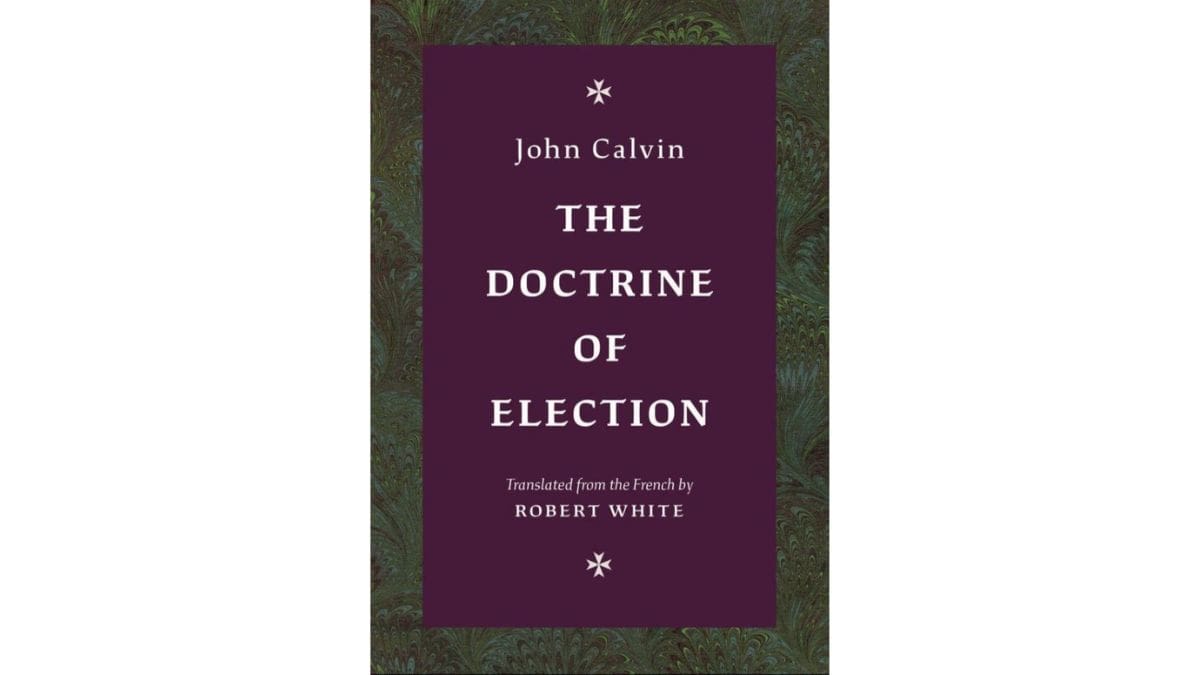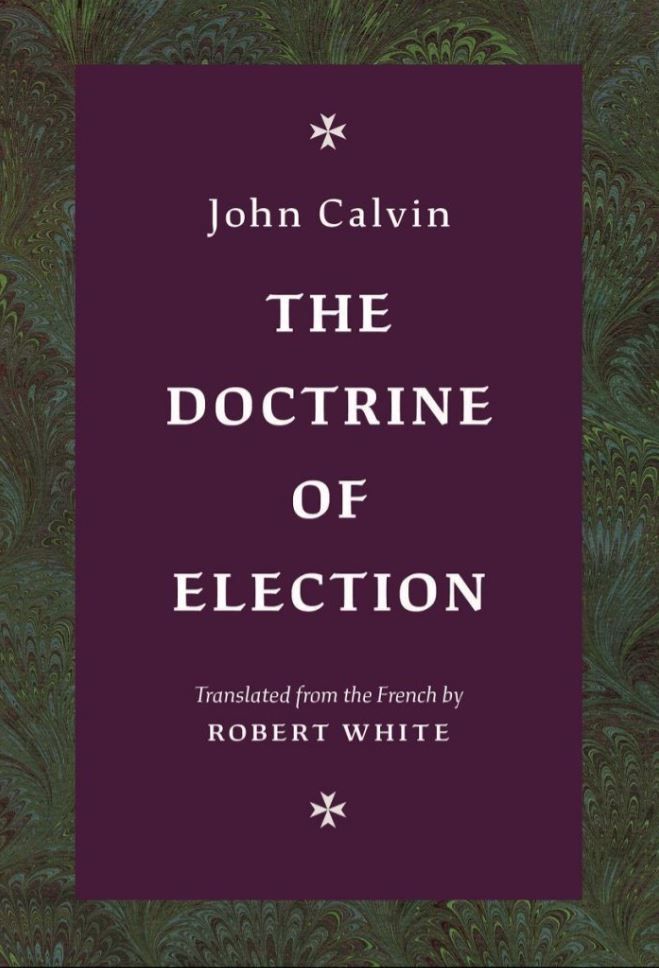The Doctrine of Election
What does the Bible say about the doctrine of election? Ten of John Calvin's sermons preached in the 16th century are translated to help us.

The Doctrine of Election is a 236 page compilation of transcribed sermons delivered by John Calvin and translated from French to English by Robert White. This book was published in 2022 by Banner of Truth.
1. Purpose of The Doctrine of Election
Robert White translated ten sermons by John Calvin that pertained to the doctrine of election. The purpose of the book is to give English readers access to some of Calvin's oral explanations of the doctrine of election to everyday Christians both in Calvin's times (16th century) and today's modern times. The sermon titles, sub-headings, and updated translation help make Calvin's repository of sermons more accessible and clear.
2. Content of The Doctrine of Election
In the introduction, Robert White notes that Calvin's understanding and articulation of the doctrine of election matured from his nascent 1936 edition of Institutes of the Christian Religion to his 1552 treatise Concerning the Eternal Predestination of God treatise. White explains the reasoning behind his selection of the sermons that he chose to translate to fully expound on Calvin's most clear teachings on the doctrine of election.
Part one, entitled "On the Eternal Election of God," was the address Calvin gave "in Geneva to a weekly assembly of ministers and laypeople"(xxi) on October 16, 1551. Calvin starts by explaining how God's election is the source of his grace, in accordance to his purposes, and not based on foreseen merit. He addresses the common objections to the doctrine of election, and he interprets several Bible passages difficult to harmonize with election like 1 Timothy 2:4, Ezekiel 18:23 and Matthew 28:19,20.
Part two consists of four of Calvin's sermons on Genesis 25 (published in 1560) and addressing the notion that God choose Jacob and not Esau. Sermon one focuses on contrasting the temporal blessings of Ishmael and the eternal blessings of Isaac. Sermons two and three expound on the struggle between Jacob and Esau in the womb. Sermon four hones in on the similarity and differences of Jacob and Esau complete the argument that God chose Jacob wholly by his grace and not by prescient foreknowledge of his character, behavior, or loyalty.
Four sermons by John Calvin are included in part three preached in May 1558 covering Ephesians 1:3–14. While Calvin cites Ephesians 1 in his Geneva address in part one of the book, he develops his thoughts in greater depth in these four sermons. In particular, he focuses on "election in Christ."
One of Calvin's sermon on Ephesians 3 fills out the fourth and final part of the book. Calvin preached this sermon to "situate election within the board sweep of God's all-embracing providence." (xxiii) God's election is not simply an isolated act but rather one aspect of God's redemptive plan within his grand plan of providence.
3. Commentary of The Doctrine of Election
White's updated translation of Calvin's sermons is clear and easy to read for today's modern readers. The ten sermons curated for this book were appropriated chosen and ordered to make the book cohesive in its presentation of Calvin's teachings on the doctrine of election. And while the first sermon of Genesis 25 drawing focus to Ishmael did not seem initially pertinent to the overall book's theme, Calvin is so rich and engaging in his introduction to Genesis 25 and explanation of the text, he whets our appetites for the rest of his Genesis 25 exposition.
White's explanatory footnotes throughout the book add helpful insight and historical context. For example, his 8-line footnote on page 70 clarifies that Calvin was not arguing for a supralapsarian position even though Calvin in order of thought placed election prior to Adam's fall. On page 112, White postulates in another footnote that Calvin's sharp criticism was likely prompted by Philip Melanchthon's silence on the matter.
White adds three appendices to this book. Appendix two, a history and analysis of critics who dispute Calvin's doctrine of election, helps us gain a greater appreciation for why Calvin interweaved so much of this doctrine in his sermons. Appendix three gives a concise synopsis of the compendium of Calvin's sermons on the New Testament that also speak on the matter of election.
4. Comparison Analysis
As the author had explained in the book's introduction, one can read other parts of Calvin's writings to try to deduce Calvin's thoughts on election. They include Calvin's Institutes of the Christian Religion, his commentaries on Romans, and his 192 page treatise Concerning the Enternal Predestination of God written in 1552. However, The Doctrine of Election is much more accessible and easy to understand for the average Christian reader.
One can read from others what Calvin had believed about "Calvinism." My favorite book on a simple explanation of the doctrine of election is R.C. Sproul's Chosen by God. But having read this book, I think the best way to understand what John Calvin believed about God's sovereign choice and election is to read from Calvin himself.
5. Final Thoughts on The Doctrine of Election by John Calvin
The Doctrine of Election is a new translation of several of John Calvin's sermons originally transcribed in French. The translation by Robert White is clear and enjoyable to read. I regard this book as a must read for Christians who want to have a biblical understanding of the doctrine of election. Robert White and Banner of Truth should be commended for providing the best resource for everyday Christians who want to learn what Calvin truly believed about the doctrine of election.

The Doctrine of Election by John Calvin
Translated by Robert White | Banner of Truth (2022)




